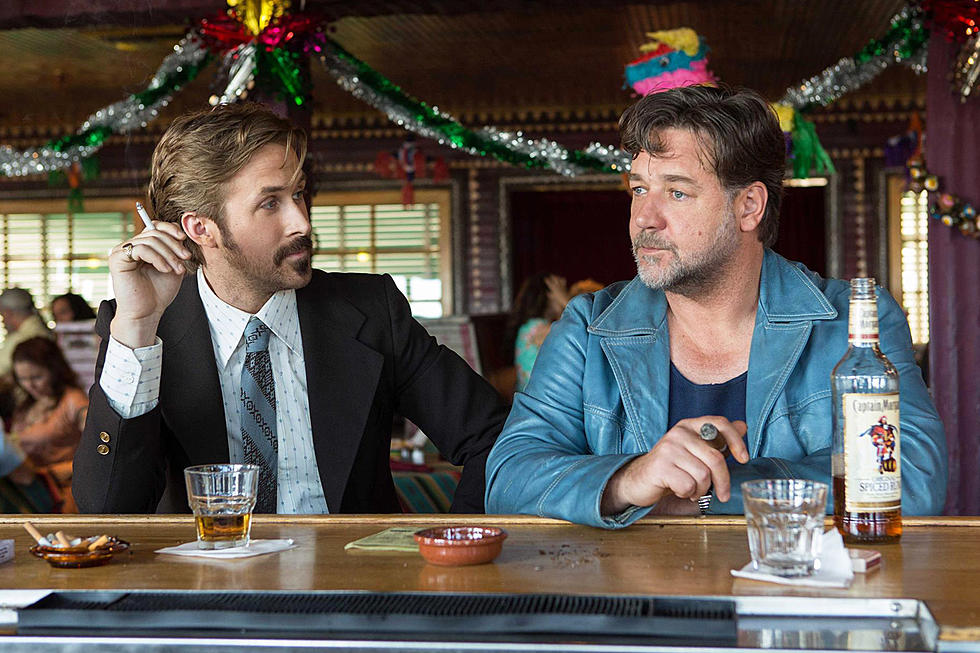
‘Only God Forgives’ Review
'Only God Forgives' feels like a merciless practical joke played upon followers of Nicolas Winding Refn’s career, fans of Ryan Gosling, and perhaps most of all, moviegoers who flocked to their first collaboration, 'Drive.' It has the same glossy visual sheen as its predecessor and the same sort of impenetrable main character, but it’s almost nothing like that film, unless a throughline of deeply dysfunctional relationships counts. Rather, it’s much more similar — in style and technique, anyway — to Refn’s black-metal fever dream 'Valhalla Rising,' whose cryptic but bloody-as-hell exploration of spirituality repelled the filmmaker’s budding fan base after he wowed them with the Kubrick-esque festival-circuit favorite 'Bronson.'
But the differences are not simply a deliberate effort to antagonize audiences. Instead, they serve as evidence that Refn has the potential to be one of cinema’s next great voices, if only because challenging himself creatively is just as important to him as evoking a strong reaction -- be it good or bad.
Gosling plays Julian, a tight-lipped young man who runs a boxing club in Thailand with his brother Billy (Tom Burke) as a front for their drug business. But when a death in the family prompts their mother Crystal (Kristin Scott Thomas) to visit Bangkok, Julian quickly finds himself in the dangerous position of carrying out her vengeful orders — which, among other things, include murder. Torn between loyalty to his domineering mother and his own niggling sense of right and wrong, Julian struggles to decide what to do, even as a mysterious policeman named Chang (Vithaya Pansringarm) threatens to force his hand by launching an investigation into their family.
Following the film’s polarized reception at Cannes, Refn told interviewers that it’s unimportant if you love or hate 'Only God Forgives,' only that you react to it. But the director is no mere provocateur, shocking viewers out of complacency with extreme violence or bizarre imagery — even if he produces plenty of that as well. Even with minimal dialogue and maximum posturing, the movie actually does make sense: It’s a portrait of deep emotional corruption, and the promise of spiritual redemption. That said, “semi-narrative cinema” might be an apropos way to characterize its storytelling; alternately intuitive and deeply contemplative, there’s a whirlpool-like inexorability to the narrative as its dreamlike haze of sex and violence grows increasingly weighted with symbolic purpose.
Whether arousing or repellent, visceral or metaphorical, sexuality — twisted, complicated, and dangerous — is the muscle that pumps blood into the film’s gorgeous but seemingly cold heart. Gosling, posed like some great gorgeous mannequin, is a walking embodiment of paralyzed desire, his Oedipal desires scuttling any chance of intimacy with the beautiful women who occasionally provide him with companionship. His subsequent frustrations, most of which are expressed physically, become both a device for drama and a thematic throughline which climaxes with a devastating psychological alchemy as he comes to terms with her poisonous control over him.
Reunited with Refn, who virtually immortalized him in 'Drive,' Gosling’s adventurousness here pays off handsomely, but possibly less so for his fans. Allowing himself to be the blank canvas against which the director projects his ideas, Gosling is at his most chillingly passive in the film, but that’s not to say he does no work. Gosling makes Julian’s self-torture palpable, particularly as he struggles through encounters with the incendiary Thomas, a force of nature who exploits his passivity with punishing abuse and phony vulnerability, depending on what the circumstances call for. The subversion of his hunky good looks as the trigger for a potentially incestuous relationship is not just a small stroke of genius on Refn’s part, but a symbol of Gosling’s willingness to toy with his own image, precisely because he so oddly and effortlessly generates forbidden sexual chemistry.
Thomas has the flashier part playing Crystal, thanks to a series of (essentially) monologues where she unleashes some of the filthiest epithets ever uttered on film. Her burden is not just to communicate, say, what sort of emotional damage the character inflicted on her children, but to do so in a way that is at once relentlessly manipulative and bizarrely earnest. That we’re unlikely to trust her is not only natural, but expected; but that we never question her integrity, even manifested in shameless, unforgivingly violent ways, speaks to the years she’s spent acclimating herself to a world where her vulnerability manifests itself in even more fearless ways than her strength.
Thanks to his reunion with cinematographer Larry Smith, who prior to lensing 'Bronson' worked on 'Eyes Wide Shut,' Refn’s film displays its wares in a similar sort of detached way as Kubrick’s, albeit with a decidedly more post-modern sheen; 'Only God Forgives' most closely resembles a blend of Michelangelo Antonioni’s glacial deliberation and David Lynch’s nightmarish inventiveness. Assembling it without a conventional sense of time, and no boundaries between what’s happening and what is imagined, it’s an exquisitely crafted film, no matter how you feel about its content.
Cliff Martinez’ score feels like its final, unseen character, edging past the composer’s previous work with a haunting theatricality that echoes the work of longtime Lynch collaborator Angelo Badalamenti and Gyorgy Ligeti along with the composer’s melodic dissonance.
But ultimately, 'Only God Forgives'' largely metaphorical execution is not just a rejoinder to the visceral enjoyment mainstream audiences derived from Drive’s electronic pulse. It evidences Refn’s determination to achieve artistic success on his own terms, both by taking his time as he ventures towards the shark tank of commercial filmmaking, and assembling each new film he makes from the lessons he took from all of his past ones. And good, bad, or unforgivable, he thoughtfully conceives its unique premise, constructs a perverse psychological foundation, and communicates its deeply subjective point of view. All of which is why Refn’s latest may very well exasperate you, and yet remain a great film -- not in spite of, but because of that reaction.
More From ScreenCrush









